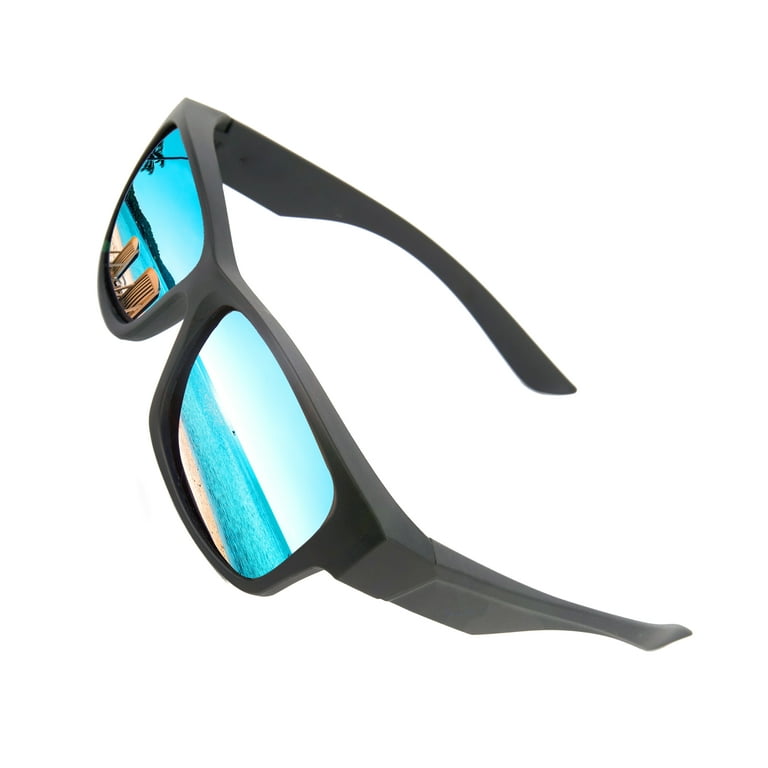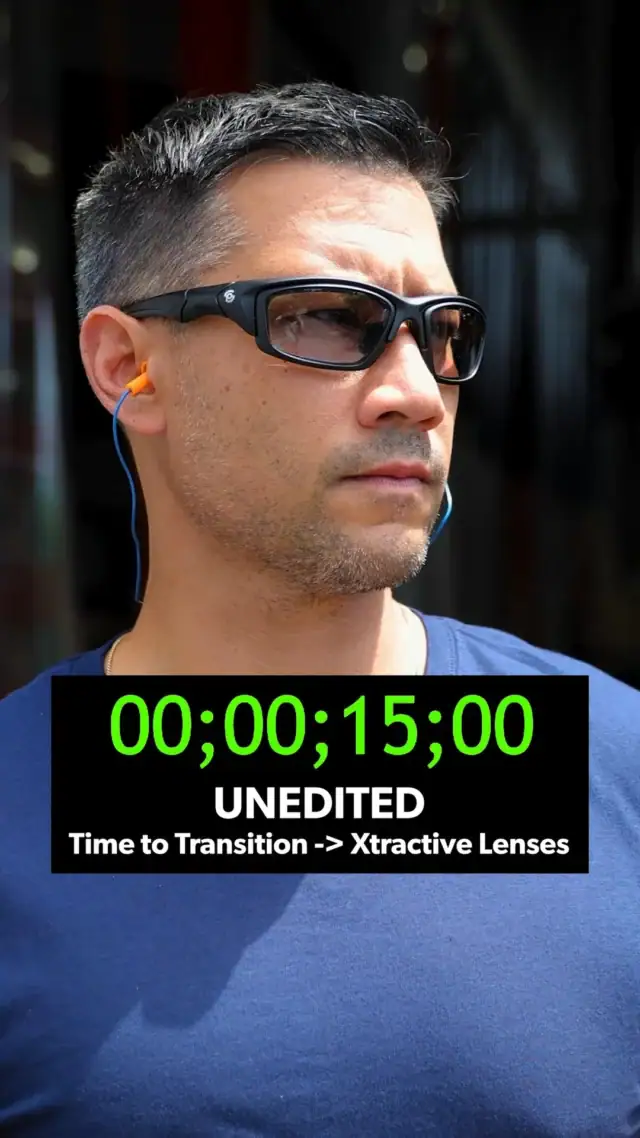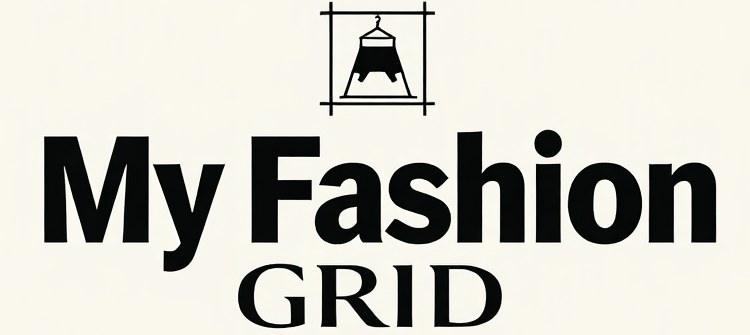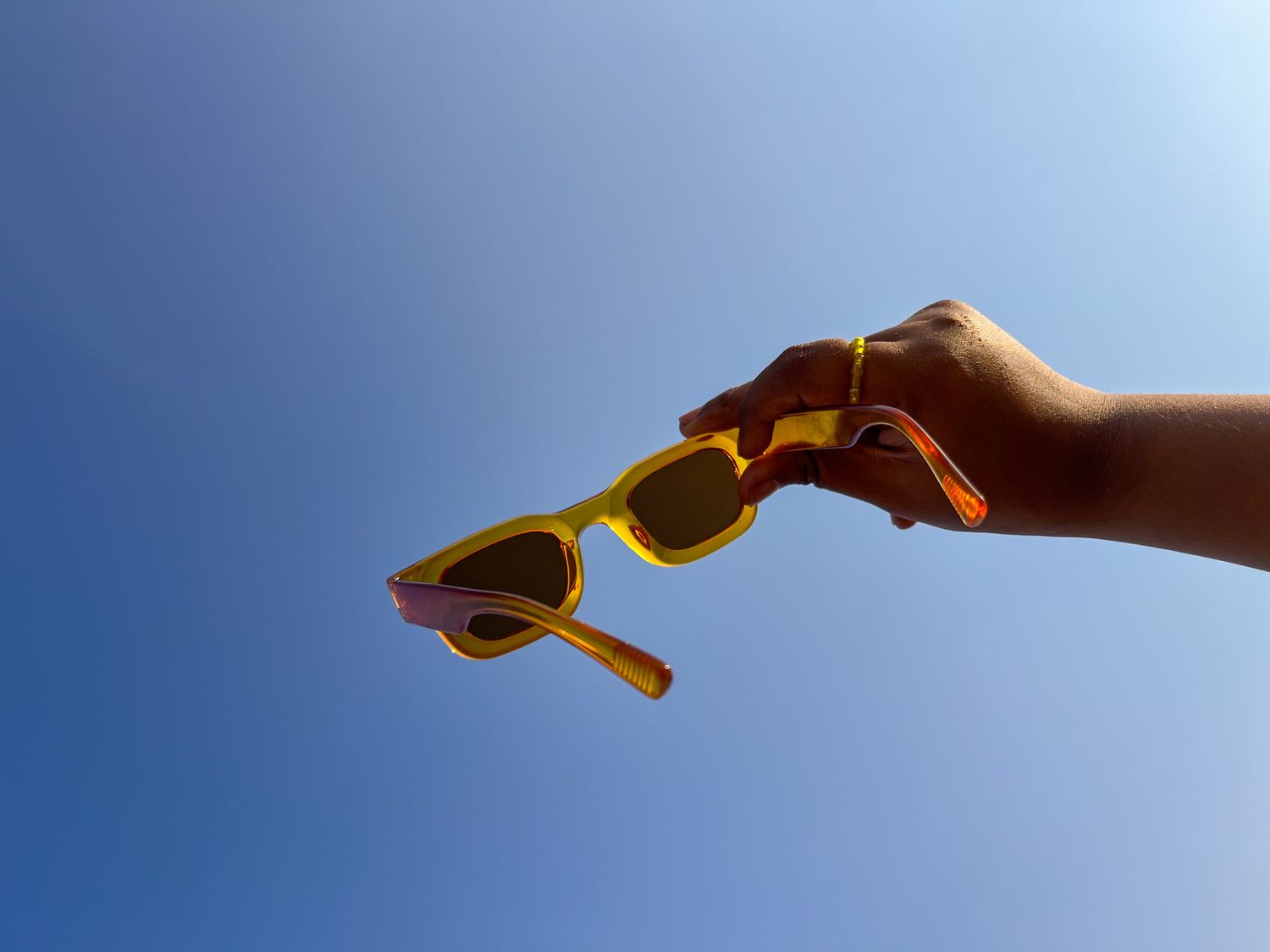Are sunglasses bad for your eyes? It’s a question many people ask, especially when you hear conflicting advice.
You might think wearing sunglasses is always good, protecting your eyes from the sun’s harmful rays. But could they actually cause harm if used the wrong way? What about cheap sunglasses that don’t block UV light properly? If you want to know the truth and keep your eyes safe, this article will clear up the confusion.
Keep reading to discover how sunglasses really affect your eye health and what you should look for before buying your next pair. Your eyes deserve the best care, and understanding the facts will help you protect them better.

Credit: agencialuispartida.com
Common Myths About Sunglasses
Sunglasses do not cause vitamin D deficiency.Vitamin D is made by your skin, not your eyes. Your skin needs sunlight to make vitamin D. Wearing sunglasses only protects your eyes and does not stop your skin from getting sunlight. You can still get enough vitamin D even if you wear sunglasses outside.
Not all sunglasses provide the same UV protection.Some cheap or dark lenses may not block harmful UV rays. Look for sunglasses that say “100% UV protection” or “UV400.” These block both UVA and UVB rays. Wearing sunglasses without good UV protection can hurt your eyes more than not wearing any at all.
Some people think sunglasses are bad for eye health. Actually, wearing sunglasses protects your eyesfrom sun damage, glare, and harmful rays. Without sunglasses, UV rays can cause cataracts and other eye problems. Choose good quality sunglasses to keep your eyes safe and healthy.
How Sunglasses Protect Your Eyes
Sunglasses block harmful UV raysthat can damage the eyes. UV rays cause long-term problems like cataracts and macular degeneration. Wearing good sunglasses helps protect the eyes from these risks. They create a shield that stops UV light from entering.
These eye diseases develop slowly and can cause vision loss. Sunglasses reduce the chance of getting them by blocking UV rays. This is very important for eye health over time.
Glare and bright light cause eye strain, making eyes tired and uncomfortable. Sunglasses lower glare, which helps the eyes relax. This is useful while driving or spending time outdoors. Less strain means less headache and better comfort.
Risks Of Poor-quality Sunglasses
Poor-quality sunglasses often lack adequate UV protection. This means harmful ultraviolet rayscan still reach your eyes. Without proper protection, eyes may suffer damage over time.
Wearing dark, cheap sunglasses causes pupils to dilate. Bigger pupils let in more UV light, increasing risk of eye harm. This effect is worse with lenses that do not block UV rays.
People may feel a false sense of securitywearing poor sunglasses. They might stay longer in bright sun, thinking their eyes are safe. This raises chances of UV damageto the eyes.
Impact Of Sunglasses On Vitamin D Production
Your skinis the main place for making vitamin D. Sunlight’s UVB rayshit your skin, starting vitamin D production. Eyesdo not make vitamin D, so wearing sunglasses does not stop this process.
Wearing sunglasses has only a small effecton vitamin D levels. They block UV rays from your eyes, but your skin still gets sunlight. This lets your body make enough vitamin D.
It is important to balancesun exposure. Too much sun can hurt your eyes and skin. Sunglasses help protect your eyesfrom damage caused by UV rays. At the same time, short time outside without sunglasses can help your body get vitamin D.
Choosing The Right Sunglasses
Choose sunglasses with a UV400or 100% UV protectionlabel. This ensures they block harmful ultraviolet rays. Not all sunglasses offer real protection, so check the label carefully.
Lens color affects how well sunglasses protect your eyes. Dark lenses do not always mean better protection. Brown, gray, or green tints often provide good clarity and comfort. Avoid very dark lenses without UV protection; they can cause more harm.
Fit and coverage are important. Sunglasses should fit close to your face to block sunlight from the sides. Larger lenses or wrap-around styles offer better coverage. Poor fit lets UV rays reach your eyes from different angles.

Credit: rx-safety.com
Tips For Healthy Sunglass Use
Wear sunglasses outdoorsduring the brightest hours, usually between 10 AM and 4 PM. This helps shield your eyes from harmful UV raysthat can cause damage over time. Dark lenses without UV protection can be worse than no sunglasses because they make pupils larger, letting in more UV light.
Avoid cheap or non-certified sunglasses.Look for labels that say 100% UV protectionor UV400. These glasses block both UVA and UVB rays. Low-quality lenses might not protect your eyes properly and can cause more harm.
Combine sunglasses with other sun protectionlike wide-brimmed hats and seeking shade. This offers better defense against sunlight. Sunglasses alone cannot block all UV rays, so layering protection is smart and safe.

Credit: www.youtube.com
Frequently Asked Questions
Is Wearing Sunglasses Every Day Bad For Your Eyes?
Wearing sunglasses daily protects your eyes from harmful UV rays and reduces risks of cataracts and macular degeneration. Choose sunglasses that block 100% UV. Avoid cheap, non-UV-blocking lenses, as they may increase UV exposure by dilating pupils. Proper use keeps eyes safe without harm.
Do Ophthalmologists Recommend Sunglasses?
Ophthalmologists recommend sunglasses to protect eyes from harmful UV rays. Sunglasses reduce risks of cataracts and eye damage. Choose sunglasses blocking 100% UVA and UVB for effective protection. Wearing them outdoors helps maintain long-term eye health.
Do Sunglasses Prevent Vitamin D Absorption?
No, sunglasses do not prevent vitamin D absorption. Your skin, not eyes, produces vitamin D using sunlight’s UVB rays. Sunglasses only protect eyes and do not block UVB from reaching other skin areas. Expose other skin parts to sunlight to maintain adequate vitamin D levels.
Is It Bad To Wear Sunglasses For A Long Time?
Wearing sunglasses long-term is safe if they block UV rays properly. Poor-quality sunglasses can increase UV damage by dilating pupils. Choose UV-protected lenses to protect eyes without harm.
Conclusion
Wearing sunglasses can protect your eyes from harmful UV rays. Poor quality or dark lenses without UV protection may cause harm. Choose sunglasses that block 100% of UV light for safety. Sunglasses help reduce glare and eye strain on sunny days.
Use them wisely to keep your eyes healthy and comfortable. Remember, sunglasses are a helpful tool, not a risk to your vision.

Marry Christin, a passionate fashion designer and style enthusiast. Fashion isn’t just my profession—it’s my addiction! Along with my expert team, I bring you honest reviews of the latest fashion trends, including shoes, boots, sandals, dresses, and more.

